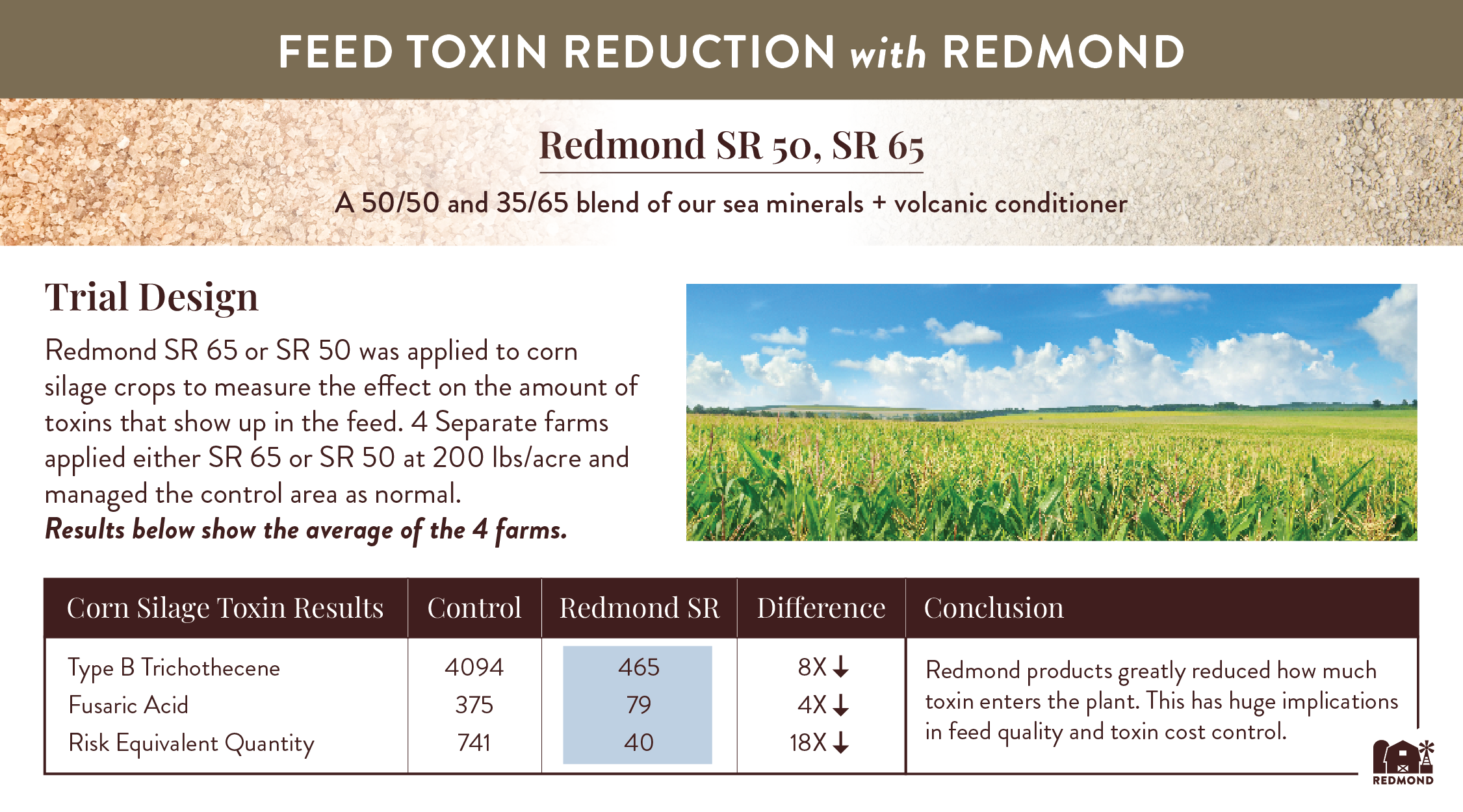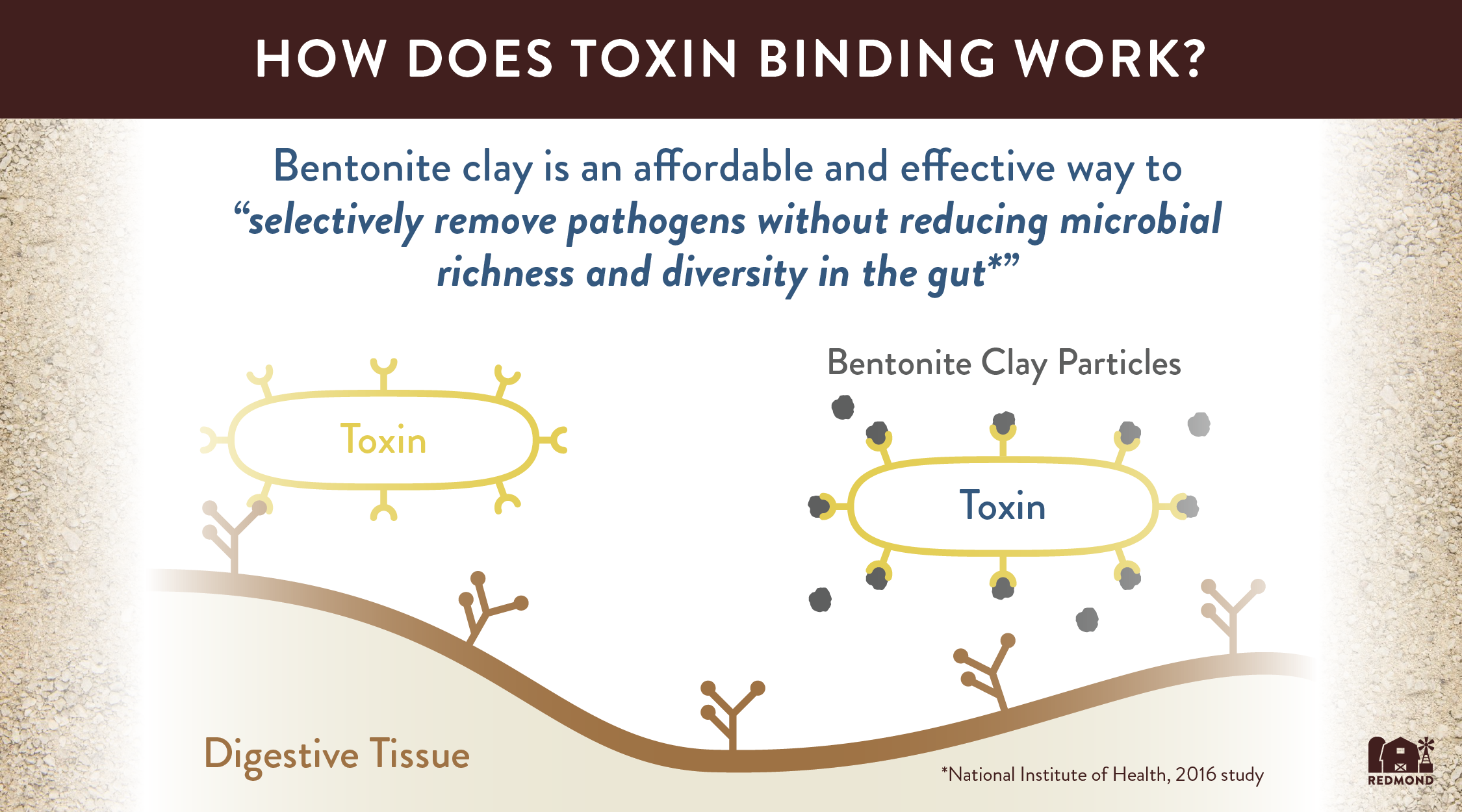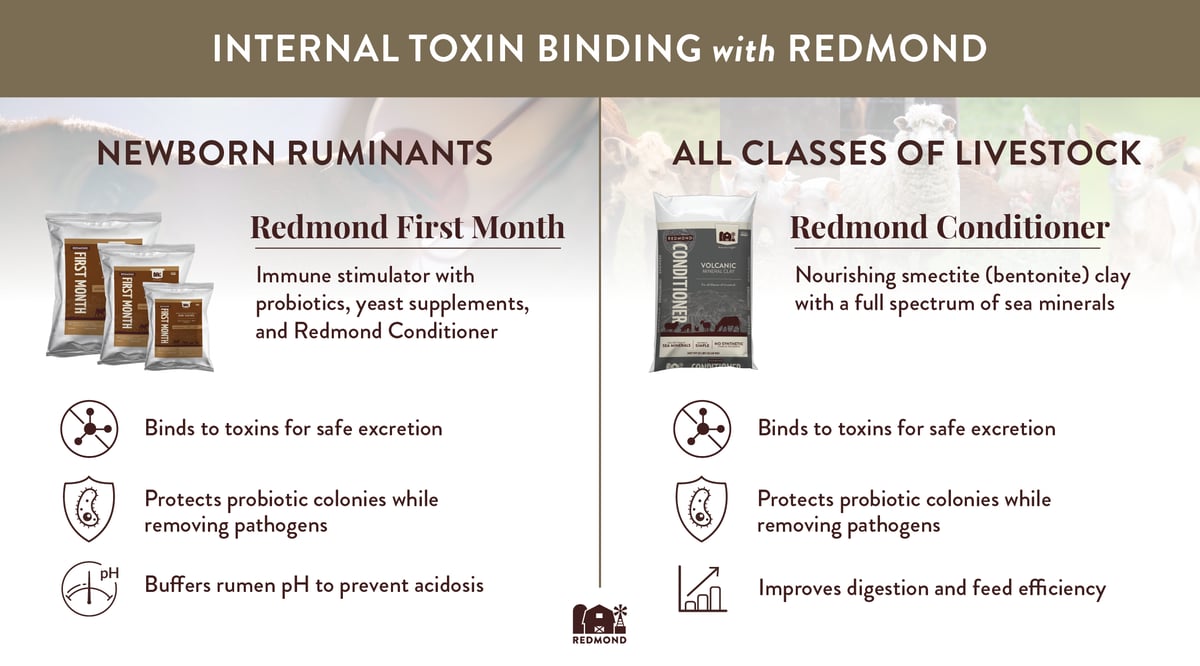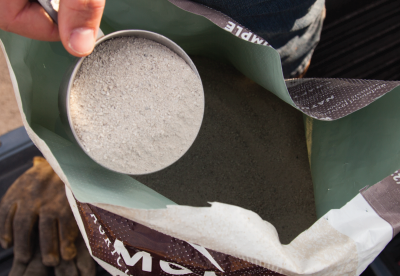Feed toxins can rob your operation of health and productivity. Whether you are growing feed crops for your livestock or purchasing from a supplier, let’s learn how to better protect your farm from toxins.
Types of Feed Toxins
Feed toxins primarily form under wet conditions while growing, harvesting, and storing. Toxin contaminated feeds are not only less palatable to your animals, but also may offer less energy, dry matter, and nutrients than clean feed. This lower feed quality can significantly reduce body scores and productivity as your animals’ metabolic and immune systems falter.
MoldS
Agricultural scientists are finding that mold and other feed toxins are behind a lot of previously unexplained health problems in livestock.
Some interesting facts about molds in feed from Penn State University (PSU):
- Moldy feed does not always contain mycotoxins (some molds have evolved to produce mycotoxins to gain the advantage over other fungi species)
- Moldy feed is less digestible and offers around 5% less energy content for ruminants
- Spore counts (found by testing) sometimes underestimate the degree of mold present and the potential risks
Mycotoxins
Mycotoxins are toxic compounds naturally produced by certain molds. Just like molds, mycotoxins (and their more poisonous sub-variety, aflatoxins) thrive in moist conditions. Several hundred different mycotoxins have been identified and can infest food sources before, during, and after harvesting.
Some other interesting facts about mycotoxins:
- Mycotoxins may be present in feeds that have little or no obvious mold present (PSU)
- Most mycotoxins are chemically stable and survive food processing (World Health Organization WHO)
- Not all toxins need warmth, some are more likely to occur under cool and damp conditions (PSU)
- They can grow in a lot of different places: soil, decaying vegetation, grains, oilseeds, spices, tree nuts, fruits, and more. (WHO)
Protecting your Farm from Feed Toxins
Here are a few best practices to reduce the impact of feed toxins on your production rates and overall well being of your animals.
Feed Testing
Whether you grow and process your own feed or buy from a supplier, testing your animals' feed for toxins is a great first step. Since feed is often produced and processed in very large batches, be sure to submit multiple samples for better accuracy. There are 2 mains types of feed toxin testing available in most areas:
- Quick testing- to determine whether toxins are present (positive or negative results), positive results require further testing
- Confirmatory/quantitative testing- to find which toxins are in your feed and in what quantities
- Here is a list of USDA approved testing laboratories.
Reducing Feed Toxins at the Source
Did you know that some crop amendments can reduce feed toxins? Redmond Agriculture conducted a trial using our SR 50 and SR 65 blends of sea minerals and volcanic conditioner.

4 separate corn silage farms applied Redmond SR 50 or SR 65 at 200 lbs/acre. These growers found that Redmond products greatly increased feed quality and reduced toxins present.
Binding to Feed Toxins (Internally)
Supplements can be easily added to rations where they can bind to harmful toxins in the feed so they can be safely excreted. PSU reports that using a adsorbing binding ingredient can inactivate mycotoxins in contaminated feeds:
“In some research trials, clay products, such as calcium or sodium bentonite…have been shown to prevent mycotoxins in feed from being absorbed into the body.”
“Other ration ingredients with some research trial support, which may be used to minimize the effects of mycotoxins, include charcoal, fiber, aluminosilicates, and yeast cell components (mannanoligosaccharide).”

The National Institute of Health (NIH) has found that bentonite clay works more efficiently than biochar or zeolite and can: “selectively remove pathogens without reducing microbial richness and diversity in the gut.”
Further NIH studies (particularly on chicken feed) showed that bentonite:
- Protected livers from toxin damage and improved liver performance
- Was more effective at preventing aflatoxicosis than activated charcoal or fuller’s earth
- Enhanced growth performance in animals
All-Natural Toxin Binding from Redmond
Redmond is proud to offer all natural, volcanic bentonite clay supplements enhanced with our full spectrum of sea minerals. Our Mineral Conditioner is a versatile supplement that is easy to apply to soil, mix in with our delicious mineral salts, or add to feed rations for all classes of livestock. For most animals, use a feeding rate of 1% of total diet and for toxin problems up to 2% (according to AAFCO rules). For newborn ruminants, we also offer Redmond First Month which contains our unique bentonite conditioner, MOS yeast cell components, and probiotics.

Redmond is ready to help your farm reduce the harmful effects of feed toxins, both internally and at the source, and get you back to what you love about raising animals. Give us a call today at  , to see how Redmond can help your operation thrive.
, to see how Redmond can help your operation thrive.
© 2024 Redmond Minerals Inc.

